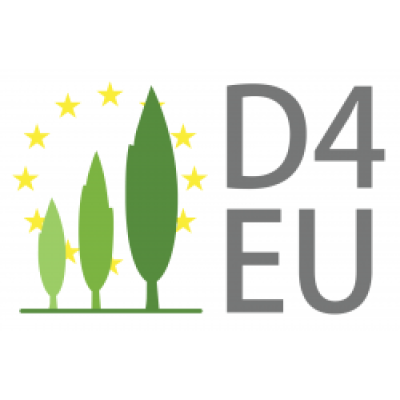
Dendromass4Europe
Securing Sustainable Dendromass Production with Poplar Plantations in European Rural Areas

Securing Sustainable Dendromass Production with Poplar Plantations in European Rural Areas
Dendromass4Europe (D4EU) aims at establishing sustainable, Short-Rotation Coppice (SRC)-based, regional cropping systems for agricultural dendromass production on marginal land. The dendromass produced in SRC (ligneous biomass, bark and wood) will be supplied to bio-based value chains which will create additional job opportunities in rural areas.
The scientifically proven advantages of SRC for agro-ecosystems and for dedicated, sustainable wood supply are well known in Europe, but there is hardly any large developed SRC dendromass supply chain for industrial use. D4EU will establish a large regional SRC dendromass supply chain dedicated for separate material use of wood and bark. The supply chain will be adapted to meet European structural and legal framework conditions, it will include efficient supply logistics and it will help to reduce CO2 emissions along the value chains.
The various activities of the D4EU project consortium aim to generate profit for the rural economy on a regional scale through value adding processes and marketing activities that will allow access for innovative bio-based materials to specific consumer markets.
Dendromass4Europe has the following objectives:
NBBM 1 (wood-based) Functionally adapted lightweight board for furniture production (IKEA Industry Slovakia);
NBBM 2 (bark-based) Eco-fungicidal moulded fibre pulp (Pulpack sp., Poland) for the production of moulded fibre packaging for the computer industries
NBBM 3 (bark-based) Bark enriched Wood Plastic Composite (Energochemica, Slovakia)
NBBM 4 (bark-based) Wood-Plastic Granulate (Energochemica, Slovakia)
Dendromass4Europe (D4EU) will have the following impacts